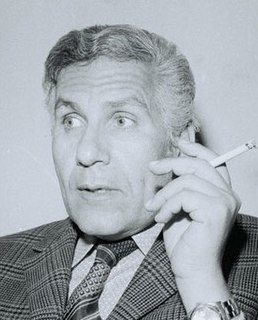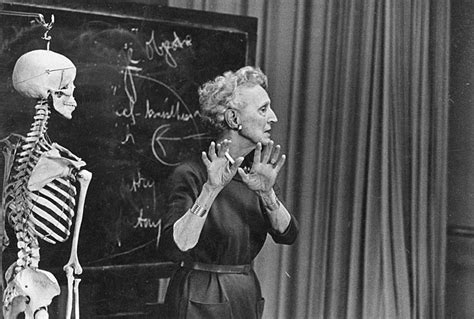A Quote by Maria Montessori
Any child who is self-sufficient, who can tie his shoes, dress or undress himself, reflects in his joy and sense of achievement the image of human dignity which is derived from a sense of independence.
Related Quotes
A man's sexual choice is the result and the sum of his fundamental convictions.... He will always be attracted to the woman who reflects his deepest vision of himself, the woman whose surrender permits him to experience a sense of self-esteem. The man who is proudly certain of his own value, will want the highest type of woman he can find, the woman he admires, the strongest, the hardest to conquer--because only the possession of a heroine will give him the sense of an achievement.
Degrees of ability vary, but the basic principle remains the same: the degree of a man's independence, initiative and personal love for his work determines his talent as a worker and his worth as a man. Independence is the only gauge of human virtue and value. What a man is and makes of himself; not what he has or hasn't done for others. There is no substitute for personal dignity. There is no standard of personal dignity except independence.
. . .a sense of humor can be a great help-particularly a sense of humor about (oneself). William Howard Taft joked about his own corpulence and people loved it; took nothing from his inherent dignity. Lincoln eased tense moments with bawdy stories, and often poked fun at himself-and history honors him for this human quality. A sense of humor is part of the art of leadership, of getting along with people, of getting things done.
Only to the extent that someone is living out this self transcendence of human existence, is he truly human or does he become his true self. He becomes so, not by concerning himself with his self's actualization, but by forgetting himself and giving himself, overlooking himself and focusing outward.
The strongest statement ever made about women's rights appears on page one of the Bible. God's first words about his daughters established an indestructible foundation for women's rights because God anchored those rights in himself. By creating his daughters along with his sons in his image and likeness, God elevated every human being to the highest possible rank. Which means any mistreatment - verbal, emotional, or physical - of any woman or girl amounts to defacement of God himself, for she bears his image.
Since a rational man's ambition is unlimited, since his pursuit and achievement of values is a life-long process — and the higher the values, the harder the struggle — he needs a moment, an hour or some period of time in which he can experience the sense of his completed task, the sense of living in a universe where his values have been successfully achieved.
Socrates was the chief saint of the Stoics throughout their history ; his attitude at the time of his trial, his refusal to escape, his calmness in the face of death , and his contention that the perpetrator of injustice injures himself more than his victim, all fitted in perfectly with Stoic teaching. So did his indifference to heat and cold, his plainness in matters of food and dress, and his complete independence of all bodily comforts.
Compassion has nothing to do with achievement at all. It is spacious and very generous. When a person develops real compassion, he is uncertain whether he is being generous to others or to himself because compassion is enviromental generosity, without direction, without " for me" and without " for them". It is filled with joy, spontaneously existing joy, constant joy in the sense of trust, in the sense that joy contains tremendous wealth, richness.
Every child has a right to know how to achieve control of his body in order that he may use it to the limit of his ability for the expression of his own reactions to life. Even if he can never carry his efforts far enough to realize dance in its highest forms, he may experience the sheer joy of the rhythmic sense of free, controlled, and expressive movement, and through this know an addition to life to which every human being is entitled.
There must be a solemn and terrible aloneness that comes over the child as he takes those first independent steps. All this is lost to memory and we can only reconstruct it through analogies in later life....To the child who takes his first steps and finds himself walking alone, this moment must bring the first sharp sense of the uniqueness and separateness of his body and his person, the discovery of the solitary self.

































